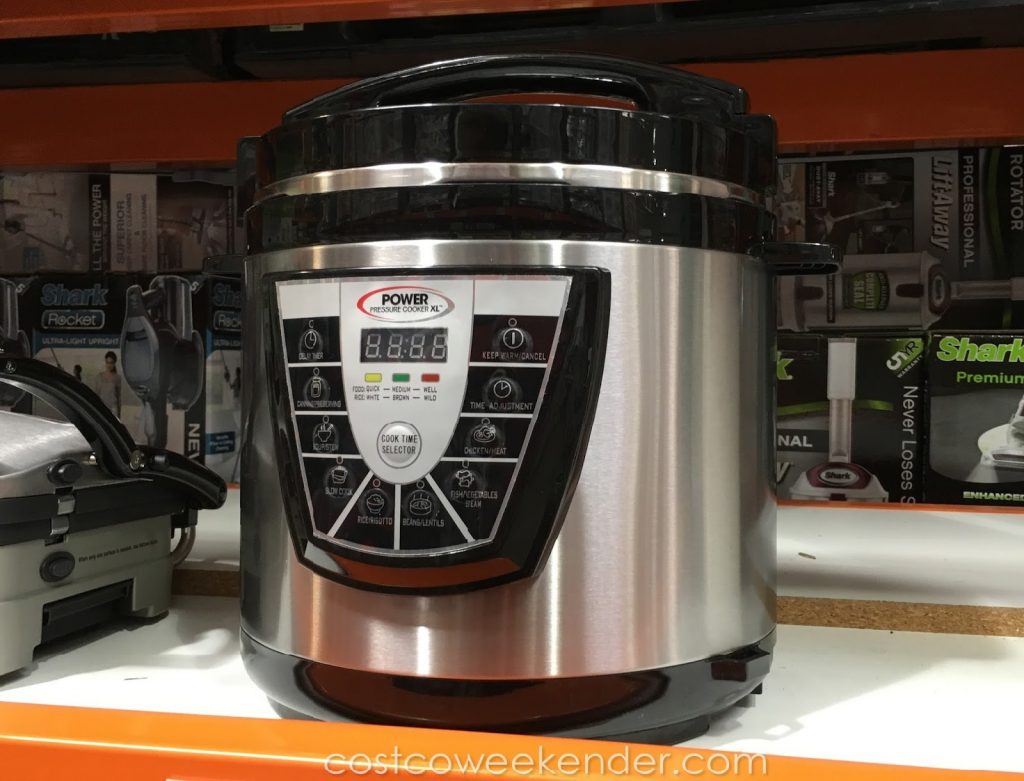Two months ago, a mom in Arizona had a scary experience. The lid on her new Tristar Power Pressure Cooker XL popped open about 10 minutes into the cooking time. No one was injured, but anyone nearby could have been burned by scalding-hot food or a steam explosion.
She never used the pressure cooker again. Instead, she reported it to the U.S. Consumer Product Safety Commission (CPSC), a regulatory agency responsible for protecting Americans from products that pose an unreasonable risk of causing injury or death.
She was not alone. Far more serious incidents were already reported. The CPSC now has around a dozen complaints about Tristar Pressure Cookers exploding open or burning people since 2015.
In one report from March 2016, a woman was hospitalized when the lid blew off and exploded its contents all over her body.
In another report from February 2015, a woman was badly burned when hot soup blew out of her Power Pressure Cooker:
The explosion did damage to my walls and cabinets, and had anyone been standing closer to it, it could have killed or seriously injured my family and my son’s friend.”
Almost all recalls start with reports like these. The process starts when the CPSC reads the report and makes a preliminary decision about the risk of more injuries.
This decision is preliminary because the CPSC must get permission from the manufacturer to issue any warnings or recalls. We’ll get to that later.
The next step is deciding if a “substantial product hazard” exists. This is straightforward in some cases (i.e., baby clothing violating flammability standards) but far more complicated in other cases.
The CPSC decides if a product like the Power Pressure Cooker XL poses a “substantial product hazard” based on three factors:
- Type of defect: Flaws in design, contents, construction, packaging, warnings, or instructions, and also how the defect causes injuries.
- Number of defective products: Just one report can lead to a recall, but if most of the products are safe (or the unsafe ones pose little risk) it may not be a “substantial” hazard.
- Severity of the risk: Number of injuries reported, seriousness of those injuries, and the likelihood of an injury occurring.
Higher priority is given to products with more substantial hazards. Top priority is “Class A Hazards” — likely to cause severe injury or death — and these products get more attention. Corrective actions may include recalls, stop-sale orders, injunctions, fines, civil or criminal lawsuits, or even forcible seizure of dangerous products by U.S. Marshals.
The vast majority of recalls are voluntary, but companies do refuse — and they do win. Mandatory recalls are extremely rare and require a court order after a trial-type hearing.
The bottom line is there is no guarantee of a recall, even when a product is obviously defective. The most likely scenario is the CPSC simply chooses not to pursue a recall, manufacturers ignore complaints, and the product stays on the market.
Americans generally believe U.S. regulatory agencies are free to do their job, and some people think regulators routinely go too far.
The reality is that the CPSC has to get permission to do its job from the private companies it regulates. In 1981, Congress added Section 6B to the Consumer Product Safety Act — giving companies “veto” power to delay, restrict, or edit what the CPSC can say.
Section 6B requires the CPSC to send a “rough draft” of the warning to the product’s manufacturer 10 days ahead of time. If the company objects, they get another 5 days to water-down, delay, or completely reject those warnings.
The law is explicitly designed to give private companies enormous power over recalls and limit the power of the CPSC, even when a product is actively killing people.
The obvious problem is that companies typically want to downplay risks, continue selling their products, or quietly pull products off the market without a recall to avoid lawsuits or negative publicity. The other problem is very few consumers report injuries to the CPSC.
In the end, lawsuits are sometimes the only way word gets out about a defective product. Tristar Inc., the manufacturer of the Power Pressure Cooker XL, is facing a growing number of lawsuits from people who were seriously burned. Without a recall, and no guarantee of any action from the CPSC, lawsuits may be necessary for injured consumers to seek justice.
Click Here for a Free Confidential Case Consultation
Source: The Road To Recall: Evaluating Substantial Product Hazards — Law360.com
